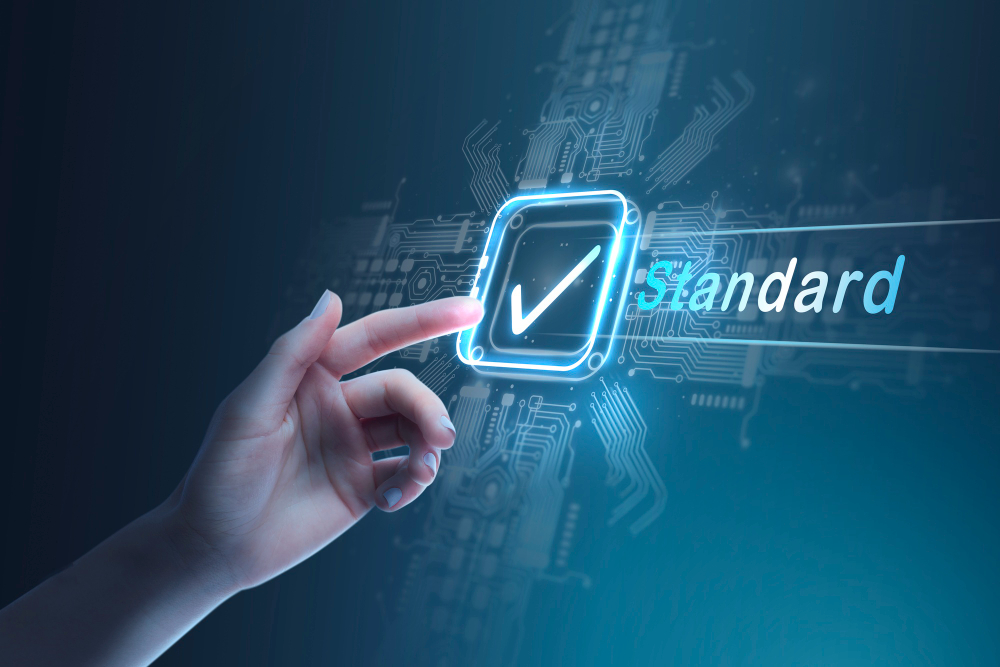Introduction
In today’s digital-first world, e-learning platforms have become the go-to resource for students, professionals, and lifelong learners. From interactive courses to certifications, the online education industry has transformed how people acquire knowledge. However, with this rapid growth comes an equally significant threat—digital piracy. Unauthorized distribution of e-learning content not only devalues the creators’ hard work but also threatens the sustainability of these platforms. This is where anti piracy software comes into play, offering advanced protection to ensure that valuable educational materials remain secure.
Anti piracy software serves as the backbone of content protection strategies for e-learning businesses. By monitoring, detecting, and taking down pirated versions of digital content, this software ensures that revenue, intellectual property, and brand reputation are safeguarded. In this blog, we will explore the vital role of anti piracy solutions for e-learning, the different aspects you should know before choosing one, and how such tools empower platforms to stay competitive in a highly challenging digital ecosystem. If you’re running an e-learning platform, this guide will show you why investing in anti piracy software is essential.
Things to Know Before Choosing Anti Piracy Software for E-Learning
Before diving into the many ways anti piracy software supports e-learning platforms, it’s important to understand some foundational aspects. Online education providers face unique challenges—ranging from protecting intellectual property to ensuring compliance with global copyright laws. Each of these elements plays a role in shaping how effective an anti piracy solution can be. Below, we expand on the critical factors that every e-learning platform must consider.
The Growing Threat of Digital Piracy in Education
E-learning content, such as video lectures, PDFs, e-books, and interactive modules, is increasingly targeted by digital piracy networks. Hackers and unauthorized users often share premium course material on torrent sites, file-sharing platforms, or even social media groups. This not only diminishes the value of original content but also deprives educators and institutions of rightful revenue. The rise of online piracy has become a pressing concern for e-learning businesses trying to maintain credibility and financial stability.
In addition, digital piracy erodes the trust students place in e-learning providers. When learners can easily find pirated versions of the same course for free, it undermines the quality perception of paid content. This problem is further magnified when piracy networks distribute outdated or incomplete material, leading to a poor learning experience. Thus, the growing threat of piracy in education highlights the urgent need for robust anti piracy software tailored specifically for the e-learning industry.
How Piracy Affects Online Course Revenue
Revenue loss is one of the most immediate and damaging consequences of online piracy. When premium courses are illegally distributed for free or at discounted rates, the platform’s ability to generate income is severely compromised. For individual instructors and institutions, this can mean reduced earnings, diminished return on investment, and limited resources to create future content. In a competitive market, such financial losses can stall growth and innovation.
Moreover, piracy introduces unfair competition into the e-learning sector. While legitimate platforms invest heavily in content creation, marketing, and technology, piracy operators exploit this effort without cost. The result is a distorted marketplace where high-quality platforms lose out on potential customers. Anti piracy software mitigates these challenges by continuously scanning the web, detecting infringements, and taking down unauthorized versions, thereby protecting the financial backbone of e-learning platforms.
The Importance of Protecting Intellectual Property in E-Learning
Intellectual property (IP) forms the core of any e-learning platform. Every course, video lecture, or assessment represents the creative and intellectual effort of educators and subject matter experts. Protecting this intellectual property is critical to maintaining the credibility of the platform. Without strong content protection, e-learning businesses risk losing not only revenue but also their brand reputation.
Anti piracy software leverages digital rights management (DRM), encryption, and watermarking to protect intellectual property. These technologies make it difficult for unauthorized users to copy, share, or distribute content illegally. For e-learning providers, implementing such protection ensures that their courses retain exclusivity, quality, and market value. Ultimately, safeguarding intellectual property fosters trust among students who expect secure and authentic content.
Compliance and Legal Challenges for E-Learning Platforms
E-learning platforms operate in a global marketplace, which means they must navigate diverse copyright laws and compliance requirements. For example, copyright infringement laws differ across countries, making it difficult for platforms to manage takedowns manually. This complexity highlights the necessity of anti piracy software equipped with legal expertise and international takedown capabilities.
Furthermore, compliance goes beyond copyright protection. Educational institutions often deal with sensitive student data and learning outcomes, which require adherence to data privacy regulations. Anti piracy solutions not only address intellectual property concerns but also help e-learning businesses stay compliant with international legal frameworks. By automating infringement detection and providing detailed reports, such software reduces legal risks and streamlines compliance management.
Why Investing in Technology Safeguards Student Trust
Student trust is the foundation of successful e-learning platforms. When learners pay for courses, they expect high-quality, secure, and reliable content. However, if students discover that the same material is freely available on piracy sites, it diminishes their confidence in the platform. Over time, this can lead to churn, reduced engagement, and reputational damage.
By investing in anti piracy software, e-learning platforms signal their commitment to protecting both students and educators. Technologies such as watermarking and content tracking reassure learners that their investment is secure. Additionally, platforms that prioritize security are more likely to attract long-term subscribers and institutional partners. Safeguarding trust through technology not only strengthens student loyalty but also enhances the overall brand value of the e-learning business.
How Anti Piracy Software Strengthens E-Learning Platforms
While understanding the challenges is important, it’s equally vital to recognize how anti piracy solutions directly benefit e-learning platforms. From revenue assurance to enhanced credibility, these tools provide comprehensive protection. Below, we explore the major ways in which anti piracy software strengthens the e-learning industry.
Safeguarding Course Content with Digital Rights Management (DRM)
Digital Rights Management (DRM) is one of the most powerful tools integrated into anti piracy software. DRM ensures that only authorized users can access and use e-learning content. By applying encryption and user authentication, DRM prevents illegal copying, downloading, and sharing of digital material. For platforms offering video lectures, DRM plays a crucial role in maintaining exclusivity.
E-learning platforms that implement DRM not only protect their intellectual property but also gain a competitive edge. By ensuring that course materials cannot be tampered with, platforms maintain the integrity and quality of their content. Additionally, DRM enhances user confidence by creating a secure learning environment, where students know they are engaging with authentic and reliable materials.
Real-Time Monitoring and Takedown Services
Piracy networks operate at scale, distributing pirated content across multiple channels simultaneously. Manual detection of these infringements is time-consuming and ineffective. Anti piracy software addresses this challenge through real-time monitoring and automated takedown services. By scanning websites, forums, social media, and file-sharing platforms, these tools detect unauthorized content distribution instantly.
Once piracy is detected, takedown requests are sent to hosting providers or legal authorities to remove the content. This rapid response minimizes revenue loss and prevents widespread distribution. For e-learning platforms, real-time monitoring ensures that pirated versions are removed before they can cause significant harm. The efficiency of takedown services is a game-changer in protecting digital education businesses.
Enhancing Brand Reputation and Competitive Advantage
Reputation is a key differentiator in the crowded e-learning industry. Platforms that fall victim to piracy risk being perceived as insecure or careless with their content. On the other hand, e-learning businesses that actively protect their courses with anti piracy software project a professional and reliable image. This proactive approach boosts credibility and positions the platform as a trusted provider of high-quality education.
Moreover, protecting content creates a competitive advantage. Instructors and institutions are more likely to partner with platforms that prioritize security, knowing their work will remain exclusive. By showcasing a commitment to anti piracy measures, platforms not only retain existing partners but also attract new collaborations, ultimately driving growth and market share.
Supporting Scalable Growth in the E-Learning Industry
Scalability is essential for any e-learning platform aiming to expand its user base globally. However, with growth comes increased risk of piracy. Anti piracy software supports scalability by providing automated solutions that grow with the platform. Whether a business serves hundreds or millions of learners, the software ensures consistent protection across all levels.
Additionally, automated anti piracy systems free up resources that would otherwise be spent on manual monitoring. This allows e-learning businesses to focus on content development, student engagement, and technological innovation. By streamlining piracy protection, anti piracy software paves the way for sustainable growth in the competitive digital education market.
Improving Learner Experience with Secure Content Delivery
The learner experience is central to the success of e-learning platforms. Students value not only high-quality content but also secure and seamless delivery. Anti piracy software enhances the learning experience by ensuring that content is protected from tampering, duplication, and unauthorized distribution. This creates an environment where students can focus entirely on learning.
Furthermore, secure content delivery reduces risks associated with malware and phishing attacks often linked to pirated material. By protecting learners from these threats, e-learning platforms demonstrate responsibility and care for their users. Enhanced security translates into higher satisfaction, better course completion rates, and improved student loyalty.
Why Choose AiPlex Anti-Piracy for Your E-Learning Platform
AiPlex Anti-Piracy is a trusted partner for e-learning businesses seeking robust content protection. With decades of experience in digital rights management and online monitoring, AiPlex offers a comprehensive suite of solutions tailored to the needs of online education providers. From real-time content tracking to global takedown services, AiPlex ensures that your courses remain secure and exclusive.
What sets AiPlex apart is its proactive approach. The company not only addresses piracy once it occurs but also prevents it through advanced watermarking, monitoring, and compliance solutions. By partnering with AiPlex, e-learning platforms gain peace of mind knowing that their intellectual property and revenue are well-protected. With proven expertise across industries, AiPlex helps educational businesses scale confidently while maintaining trust and integrity.
Conclusion
The rise of digital education has brought immense opportunities for learners and providers alike. However, with growth comes the looming threat of piracy, which undermines revenue, intellectual property, and brand reputation. Anti piracy software emerges as a critical safeguard, empowering e-learning platforms to protect their content, maintain student trust, and achieve sustainable growth. From DRM and real-time monitoring to t



